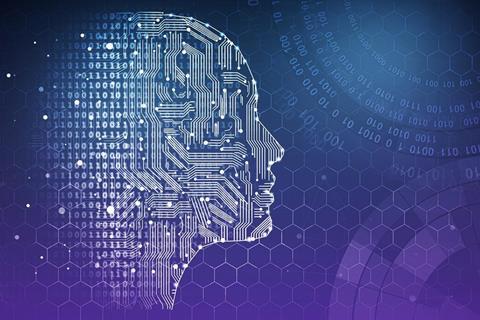Artificial intelligence takes over the BBC 4 schedule and edits a programme for the channel

BBC 4 is using artificial intelligence (AI) to curate two-nights of programming about AI on Tuesday 4 and Wednesday 5 September. The programming will be broadcast under the banner ‘BBC 4.1 Artificial Intelligence TV’.
The channel is utilising the AI it’s been developing in partnership with BBC R&D to schedule the content, which will include new material along with “hidden gems” from the BBC archive that explore issues around AI.
The programming includes new commissions Made by machine: When AI met the archive, which has been part-made by AI, and The Joy of AI, in which Professor Jim Al Khalili discusses the progress of AI to date and the emergence of machine learning.
“BBC 4 is grasping the nettle by the hand with this bold experiment to investigate just how AI might open up new creative opportunities”
To locate relevant content in the BBC archive, BBC 4 used AI to search through more than 250,000 TV programmes dating as far back as 1953. The selections were made based on the channel’s previous schedules and programme attributes, with each potential candidate ranked for its relevancy for the BBC 4.1 Artificial Intelligence TV schedule.
“Doing this manually would be impractical as it would take hundreds of hours, but the AI gave BBC 4 a more manageable selection in a fraction of the time,” said the BBC’s press release announcing BBC 4.1 Artificial Intelligence TV. “This enabled researchers and schedulers to uncover programmes they may never have been able to find and will broadcast a selection that haven’t been seen in years.”
The Made by machine: When AI met the archive commission also employed the same archive-scanning AI, and features four segments of archive clips sourced and edited together by the AI (see box below).
Cassian Harrison, channel editor, BBC 4, said: “With its brief to experiment, BBC 4 is grasping the nettle by the hand with this bold experiment to investigate just how AI might open up new creative opportunities. AI TV will demonstrate just how AI and machine learning might inform and influence programme-making and scheduling, while also resurfacing some gems from the BBC 4 archive along the way.”
George Wright, head of internet research and future services, BBC R&D, added: “Helping BBC 4 scour the BBC’s vast archives more efficiently is exactly why we’re developing this kind of AI. It can find very specific pieces of content in large libraries of programmes, which has massive benefits for BBC programme makers and audiences. BBC Four’s experimental night of programming is a great example of this.”
How AI was used to make Made by machine: When AI met the archive
· First, the AI learns to identify what a scene consists of, such as the type of landscape, what objects there are, whether people are featured and what they might be wearing. People will see how it attempts to create a compilation where each scene follows on from the last in some way.
· The second segment follows the AI as it scans the subtitles of archive programmes and then looks for connections between words, topics and themes as it pieces footage together.
· The third segment shows the AI analysing whether there’s a lot of activity on screen (high energy) or not (low energy). It then tries to create a compilation that moves back and forth between high and low energy scenes.
· In the fourth segment, the AI draws on what it’s learnt using all three techniques to create a new piece of content.
































No comments yet